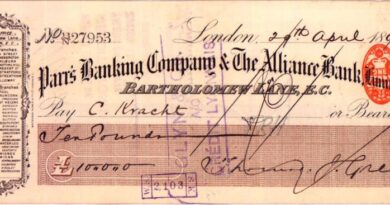Germany – Allied Military Post Stamps
Ann Beaver-Thomson provided members with a display and the background to the issue of the Occupied Germany Allied Military Post Stamps during 1945-46.
At the Yalta Conference in February 1945, Stalin, Roosevelt and Churchill decided that Germany should be divided into four Occupation Zones, American, British, French and Soviet Russian. Berlin was to be divided into four sectors and placed under joint allied control. As we now know, Berlin was later divided into East and West Berlin.
I believe that the above-mentioned conference discussing and proposing the printing of stamps underlines the importance of that small stamp that you put on the top right hand side of your envelope.
Germany surrendered on 7 May 1945 and Allied Military Post stamps, which had first been issued in Aachen on 19th March 1945 and brought in by the Americans in their back packs as it were, came into use throughout the American and British Zones.
The French issued special stamps in their zone and the first issues were made by the local postal administration in the Soviet Russian Zone .
Thus the stamps firstly used were American and had a perf of 11, they were used for some time with the British stamps. Unfortunately the British stamps were perforated from 11 ¾ to 14 ¾ and would be a nightmare to collect and keep; therefore I am showing only a few of those, but mainly the American stamps used during the Occupation and the German stamps, used later during the Occupation.
The German stamps were, like the American ones, perforated 11 and stayed that way. These were used some 4 months later in the Occupation, as the Post Masters before were usually members of the Nazi Party.
Those in power during the 2nd WW deemed that only those who followed the Nazi creed could hold positions such as those of Postmaster and it took some time for the allies to appoint German Postmasters, as they had to be certain that those who took over had not held any such position under the Nazi regime.


